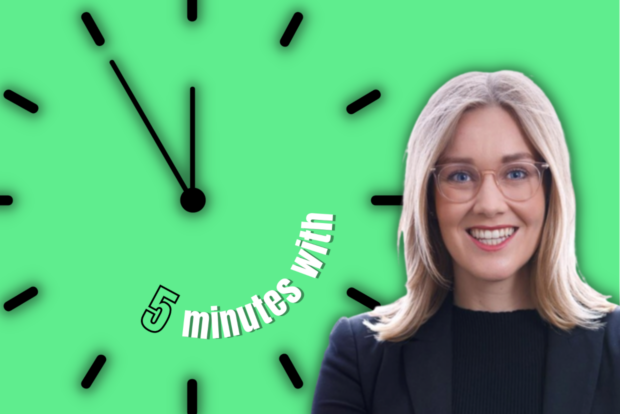Innovation 2023 five minutes with… Megan Lee Devlin of the UK’s Central Digital and Data Office


In this sister series to our ‘Five minutes with’ interviews, we share insights from the civil and public service leaders that will be speaking at our free Innovation conference. Taking place in London on 21 March 2023, and available to stream on demand, during the event officials from all over the world will promote and develop new approaches to policymaking and service delivery.
In this interview, Megan Lee Devlin, chief executive of the UK Central Digital and Data Office – who will join the conference session on innovation in digital transformation – tells GGF about harnessing emerging technology, reconfiguring government service delivery around agile product teams, and learning from Denmark and Germany.
Click here to register for Innovation 2023
What are you most interested in discussing at Innovation 2023?
What will be the next ChatGPT? There is no doubt that large language models and other types of AI will continue to reinvent the way that we live, but I’m also fascinated by the many other potential digital futures we may be on the threshold of, and how we in government can best harness the benefits of whichever new technology will come hurtling towards us next.
What drew you to a career in the civil service?
The scale of the challenge. Government has many long-held conventions, many of which are cornerstones of the Westminster System and traditions to be celebrated. But transformation is tough in an organisation as established and complex as the UK civil service and particularly in the face of crisis and challenge, like the cost-of-living crisis this winter. It takes thoughtful decision-making and a lot of resilience to balance the important with the urgent, but the government machine is enormously powerful, and has the power to do enormous good.
What is the best piece of advice you’ve been given in your working life?
A mentor of mine told me that “you win or you learn”. He taught me that it’s important to celebrate progress and successes, and it’s even more valuable to reflect on what hasn’t worked and learn from it. I find that mentality helps me to be bolder, fail fast and approach challenges and roadblocks as opportunities to discover new things.
What do you like most about working in the civil service?
The opportunity to do work that improves people’s lives and livelihoods everyday – the 60 million people who use our services and the half a million civil servants in the country who serve them. No where else can you have that scale of impact.
If you could introduce one civil service reform, what would it be?
Can I give two answers? One short term reform, and one major overhaul to the way we do business. The short-term reform is upskilling. Upskilling all civil servants on digital ways of working, how to best leverage technology and how to use data. To me that knowledge is the key to delivering policy with greater precision and impact, and building and sustaining world-class services.
The major overhaul is a bit of a bold one – the reconfiguring of government service delivery around agile product teams. Aligning funding, governance, performance measures and incentives to continuous cross-functional teams (made up of policy, delivery and digital specialists) that deliver measurable outcomes for the public continuously.
How might the civil service be different in 25 years’ time?
25 years is a long way away! We can’t be certain whether the technologies used in 25 years’ time will be the ones emerging today – AI, virtual and augmented reality, virtual assistants embedded in places and wearables, quantum computing, biotech advancements or accelerations in nanotechnology. Or, given the current pace of change, maybe a new set of technologies entirely. But I hope the civil service will have fully embraced whichever technologies define 2048, and that civil servants will be able to spend their time on doing the high value activities that technologies can’t master, like those that require empathy, creativity and critical thinking.
Which country’s civil service are you most inspired by and why?
It has to be Denmark. They have done digital transformation by the book and have realised the benefits of single authentication and verification, digital-by-default communications, and excellent data security and privacy. It has been a 20-year journey but they have relentlessly pursued a courageous vision and it has paid dividends in usability and efficiency.
Can you name one lesson or idea from abroad that has helped you and your colleagues?
We were inspired by the German ‘Digital Check’ that aims to make legislation simple and easy to implement, incorporating digital ways of working, data protection and security and automation into the policymaking process. Legislative and policy blockers are some of the most significant blockers to digital transformation of services in the UK, so we are piloting our own version in the hope of ensuring all new legislation and policy is future fit.
Is there something about you that people find surprising?
I spent three years becoming a chartered accountant.
What is your dream holiday destination?
A safari in Tanzania.
More from this series:
Laura Gilbert, 10 Downing Street chief analyst
Peter Pogačar, director general of Slovenia’s Ministry of Public Administration
Ann Dunkin, US Department of Energy CIO
Want to write for GGF? We are always looking to hear from public and civil servants on the latest developments in their organisation – please get in touch below or email [email protected]



